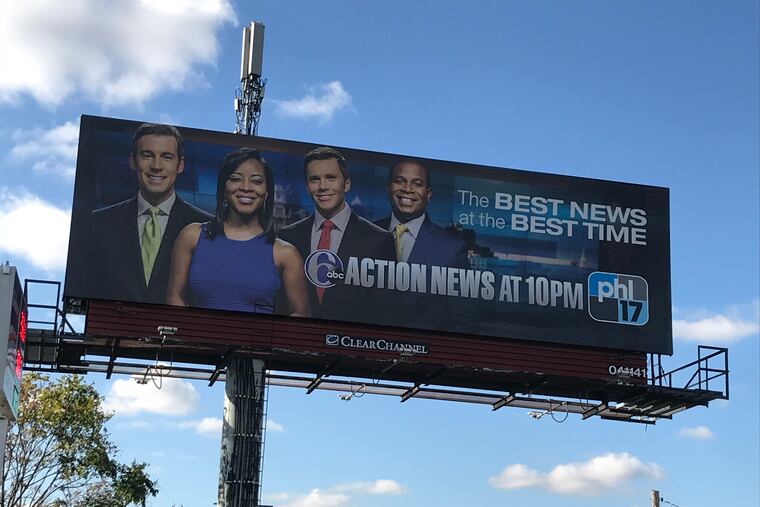Pennsylvania schools can tax the land on which billboards stand, appeals court says
Commonwealth Court of Pennsylvania overturned a long-held property-tax exemption for billboards in a Delaware County case.

In a tax case involving two Delaware County school districts and more than 20 billboards along I-95 and Route 322, a Pennsylvania appeals court last week overturned a long-accepted property-tax exemption for billboards in counties outside Philadelphia.
The finely tuned opinion upheld tax exemption for billboards themselves and the structures that support them, but said the assessed value of the land where the signs stand should take into account the rent paid to the property owner.
As the current law does not permit taxing billboards, the Chester-Upland and Chichester School Districts were hoping to increase the assessment of the land the signs were on because the rent could raise the value of the land. The creative legal move was seen as a desperate attempt by school districts to increase revenue amid strained budgets.
A prominent Philadelphia-area real estate attorney called the Dec. 27 decision significant because it could lead to a “creep” that would undermine other exemptions, such as those for silos, amusement park rides, and wind turbines, in the 2006 Consolidated County Assessment Law.
“Here’s what worries me as a property owner’s lawyer: What’s next?” wondered Peter F. Kelsen, of Blank Rome LLP, which does not represent billboard companies.
Lawmakers already denied exemptions to cell-phone towers, Kelsen said Thursday. “But what other things could now become taxable because there’s a rent being derived by the landlord or the property owner?”
Kelsen said he expected that billboard companies would attempt to take the case to the state Supreme Court to gain final clarity.
An attorney for one of the billboard companies, Outfront Media Inc., said Wednesday that the company was still deciding how to proceed. “We think Commonwealth Court is clearly wrong and what it did conflicts with what the legislature provided in the statutory exceptions,” said Alan C. Kessler of Duane Morris LLP.
Donald J. Weiss, the attorney for the school districts, said he came up with the idea for taxing billboard parcels in 2013 while sitting by a pool reading the statute.
The statute says that “no sign or sign structure shall be assessed as real property. It doesn’t say the ground on which the sign sits shall not be taxed,” Weiss said in 2017.
“If I own a piece of ground and I’m renting it to a billboard company for $2,000 a month, why shouldn’t I have to pay tax on the ground as if I can rent it for $2,000 a month?” Weiss said.
Weiss, who brought the case on a contingency basis, said this week that he found it gratifying that the three-judge Commonwealth Court panel agreed with him and did not find his argument “nebulous and unfocused,” as did Delaware County Court of Common Pleas Judge Charles B. Burr II in a 2017 decision that upheld the exemption for the billboard parcels.
The Commonwealth Court decision is not expected immediately to lead to higher tax bills on billboard parcels. The ruling is of enough “public importance that the Supreme Court may want to take a look at it,” said John P. McBlain, chairman of the Delaware County Council.
“If the Commonwealth Court ruling remains in place, yes, I think that would certainly affect how the properties are assessed,” McBlain said.